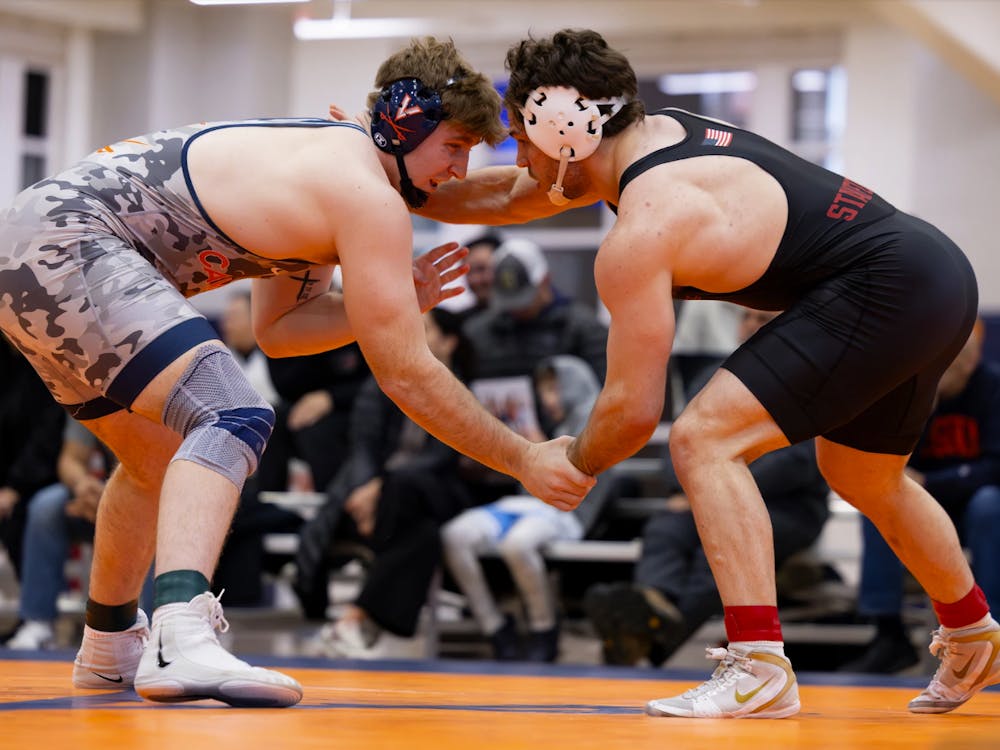The Wes Anderson-directed Moonrise Kingdom was my favorite film of the summer. As is characteristic of Anderson’s films, Moonrise Kingdom offered both a charming, quirky brand of humor and a thought-provoking central theme, all the while unapologetically embracing its weirdness.
Once upon a time, college football was the Moonrise Kingdom of big-time American sports. Though technically featuring a lower quality of football than the NFL, the college game nevertheless remained a staple of the nation’s sports scene thanks to its passionate competition, compelling on-field action and rabid fan support.
But college football has always been a strange animal. If the fervent, conference-driven regionalism and gimmicky offenses didn’t distinguish college football from other sports, the NCAA’s long-time refusal to designate a sensible playoff system certainly did. Throw in the occasionally sloppy play and the uneasy balance between academics and sports, and you had a sport that was both endlessly captivating and remarkably odd.
The astute reader — or anybody that’s still awake — will note I wrote the preceding paragraph in unexplained past tense. My explanation for that choice begins with a college football off-season that went about as smoothly as the average Ryan Lochte interview. In the span of a few months, the NCAA PR department has had to cope with such cheerful developments as a drug bust involving TCU players; continued fallout from the Miami, North Carolina and Ohio State improper benefit/contact scandals; the dismissal of Tyrann “Honey Badger” Mathieu from LSU for putting the “High” in “Heisman candidate”; and, of course, the Sandusky trial and subsequent Freeh Report on Penn State’s misconduct, a catastrophe that to many disaffected fans epitomized the reckless and unscrupulous largesse of big-money college football. Meanwhile, conferences and programs continued to pursue aggressive realignment, with the Big East reduced to a shell of its already unimpressive former self.
Somehow, while all else was going haywire, university presidents, conference officials and the NCAA finally buckled under public pressure and installed a four-team playoff system to go into effect for the 2014 season.
This summer’s trials expose a fundamental truth: somewhere along the quest to enlarge and enhance the game, the powers that be in college football sacrificed some of the eccentricity that made the sport special.
College football has evolved during the past decade. The players and teams are bigger, faster and smarter, to the point that betting on a hypothetical Bama-Indianapolis Colts matchup last season gave many football fans more pause than it ever should. And some of the most enthralling games in the history of the sport have occurred in the last few seasons, bolstering the argument that college football trumps the professional league in sheer excitement. What’s more, those gargantuan TV contracts ensure that more and more fans can enjoy the action. In addition, as any fan website or forum will show, supporters of college football remain as fervent and invested as ever.
But all that growth came at a steep cost. Obviously, Sandusky’s victims paid an incalculable, unimaginable price. Members of the Penn State community have paid the cost of losing a winning and profitable program.
On a broader level, however, the more resources major programs committed to the all-important goal of winning, the further college football drifted from its quirky underpinnings and into an iffy gray area between intercollegiate competition and semi-professionalism.
Improper violations and academic shortcuts are nothing new to college athletics — just ask any SMU football or Michigan basketball fan — but their increased frequency indicates that for many coaches and athletic directors, the incentive to build programs into superpowers far outweighs any noble impulse to protect the sanctity of amateurism. And for all the rhetoric players hear about being student-athletes, they still must resist the overwhelming temptation to reap the financial benefits of their talents and prioritize their NFL chances ahead of their education — a temptation often enabled by greedy, self-interested agents and boosters.
Realignment and the demise of the BCS reflect the transformation of college football to a watered-down professional league. Yes, the current conferences are horribly imbalanced, and it will be nice to see a national championship solution that doesn’t require quantum physics to comprehend. Nevertheless, those shortcomings helped define college football’s character. Without them, the college game closes the gap on the NFL but loses some of its distinctive peculiarity.
What does any of this have to do with Virginia and the ACC? Considering the conference functions as a microcosm of college football, everything. As previously discussed, our conference already features its share of flagrant rule violators in North Carolina, Miami and Florida State. It also includes members — like Virginia — that are good but not traditionally great programs and faced with a sinister choice: continue emphasizing the importance of the student-athlete, or buy into the cynical notion that only treating players as athlete-students can allow a team to taste true glory.
Fortunately, we seem to be blessed with a coach in Mike London who has his priorities in order. I just fear that the shift in the game is rapidly rendering coaches like him the exception to the rule, and turning what used to be an inspiring game into merely a very effective business enterprise.
Thousands of fans will join me Saturday in celebrating the return of college football. But it bears wondering whether the “perfection” of the game has sapped some of the humanity out of a sport whose greatest quality was showcasing the human spirit. As this offseason showed, the game is now more of a Michael Bay blockbuster than a Wes Anderson oddity.






